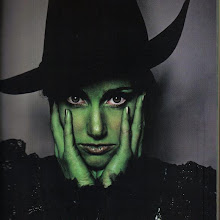Karenin's smile
Many thanks to WS for sharing this.
I just want to hold you close;/ I feel your heart so close to mine...
~
... Along the way, they met a neighbour who was hurrying off to a cow shed in her rubber boots. The woman stopped long enough to ask, "What's wrong with the dog? It seems to be limping." "He has cancer," said Tereza. "There's no hope." And the lump in her throat kept her from going on. The woman noticed Tereza's tears and nearly lost her temper: "Good heavens! Don't tell me you're going to bawl your head off over a dog!" She was not being vicious; she was a kind woman and merely wanted to comfort Tereza. Tereza understood, and had spent enough time in the country to realise that if the local inhabitants loved every rabbit as she loved Karenin, they would be unable to kill any of them and they and their animals would soon starve to death. Still, the woman's words struck her as less than friendly. "I understand," she answered without protest, but quickly turned her back and went her way. The love she bore her dog made her feel cut off, isolated. With a sad smile, she told herself that she needed to hide it more than she would an affair. People are indignant at the thought of someone loving a dog. ...
Even though Genesis says that God gave man dominion over all animals, we can also construe it to mean that He merely entrusted them to man's care. Man was not the planet's master, merely its administrator, and therefore eventually responsible for his administration. ...
Tereza kept stroking Karenin's head, which was quietly resting on her lap, while something like the following ran through her mind: There's no particular merit in being nice to one's fellow man. She had to treat the other villagers decently, because otherwise she couldn't live there. Even with Tomas, she was obliged to behave lovingly because she needed him. We can never establish with certainty what part of our relations with others is the result of our emotions - love, antipathy, charity, or malice - and what part is predetermined by the constant power play among individuals.
True human goodness, in all its purity and freedom, can come to the fore only when its recipient has no power. Mankind's true moral test, its fundamental test (which lies deeply buried from view), consists of its attitude towards those who are at its mercy: animals. And in this respect mankind has suffered a fundamental debacle, a debacle so fundamental that all others stem from it. ...
Tereza keeps appearing before my eyes. I see her sitting on the stump petting Karenin's head and ruminating on mankind's debacles. Another image also comes to mind: Nietzsche leaving his hotel in Turin. Seeing a horse and a coachman beating it with a whip, Nietzsche went up to the horse and, before the coachman's very eyes, put his arms around the horse's neck and burst into tears.
That took place in 1889, when Nietzsche, too, had removed himself from the world of people. In other words, it was at the time when his mental illness had just erupted. But for that very reason I feel his gesture has broad implications: Nietzsche was trying to apologise to the horse for Descartes. His lunacy (that is, his final break with mankind) began at the very moment he burst into tears over the horse.
And that is the Nietzsche I love, just as I love Tereza with the mortally ill dog resting his head in her lap. I see them one next to the other: both stepping down from the road along which mankind, "the master and proprietor of nature", marches onward.- Excerpt from Milan Kundera's The Unbearable Lightness of Being


2 kommentarer:
I want to rear a lion cub too.
I'll just stick to a dog. And I'll name him Karenin.
Send en kommentar